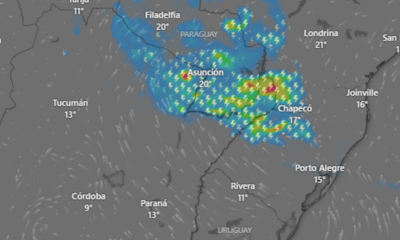INTERNACIONAL
A weakened Hezbollah leads some in Lebanon to talk of peace with Israel as US pushes sides together
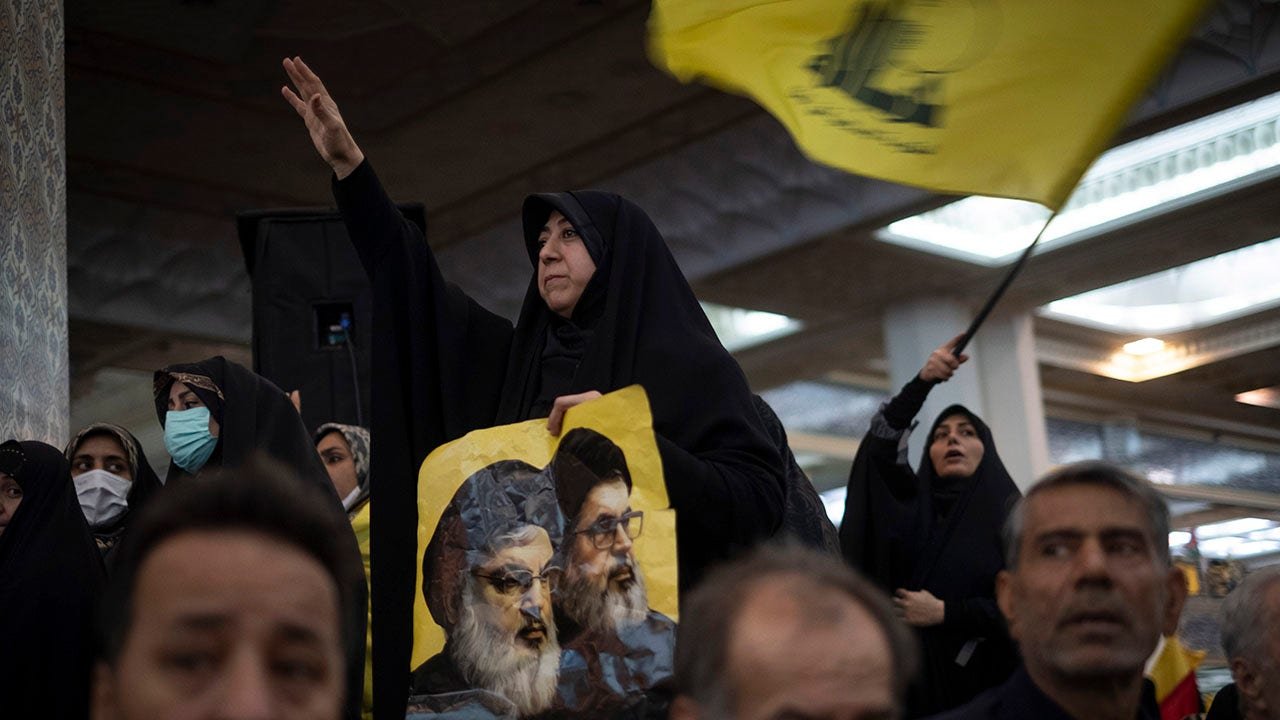
Since Israel’s near annihilation of Hezbollah’s terror leadership, and the backing of the Trump administration, whose special envoy to Lebanon has made clear the U.S. goal of limiting the power and influence of the Iran-terror proxy, the winds of change are slowly blowing over Beirut.
«Thanks to Hezbollah being weakened and defeated after the war with Israel, we are finally in a position to have this conversation about peace with Israel,» Rami Naim, Lebanon affairs journalist and analyst for Jusoor News, told Fox News Digital. «In the past the intelligence investigated me and took me to jail because I said we want peace with Israel, but now I say it openly, yes, we want normalization, and yes, we want peace with Israel without fear.» Naim was personally attacked by Hezbollah last year for his outspoken views.
The weakening of Hezbollah, Iran’s proxy, and the election of Joseph Aoun as Lebanon’s president in January 2025, represents a turning point in the country’s political trajectory. After more than two years of political deadlock, Aoun’s election was seen as a victory for the anti-Hezbollah camp, and has seemingly made the shift in public opinion regarding peace with Israel more palatable.
LEBANON’S NEW PRESIDENT STRIKES A NATIONALISTIC TONE AMID REGIONAL SHIFTS, FURTHER WEAKENING OF HEZBOLLAH
An IDF information chart showing how it decimated the Hezbollah chain of command in recent strikes. (IDF Spokesman’s Unit)
Touting the U.S. president, Naim said, «We believe Trump will put things back on track and work toward peace, aiming for a major peace deal between Lebanon and Israel, which will require increased pressure on Iran.»
Interviews conducted by Jussor, a pan-Arab media outlet, have highlighted that many Lebanese citizens are now willing to consider normalization with Israel. One Lebanese man, interviewed on camera with his face showing, shared his hope: «I believe a day will come when there will be normalization with Israel. It will take time, but it will happen eventually.»
Another interviewee echoed similar sentiments: «Israel wants peace. They don’t want war. They are cleaning things up so war doesn’t happen, and we want peace too. We’re exhausted.»

Lebanese President Joseph Aoun meets with Morgan Ortagus, U.S. deputy special envoy for Middle East Peace, in Beirut on Feb. 7, 2025. (Lebanese Presidency/Handout/Anadolu via Getty Images)
Morgan Ortagus, U.S. deputy special envoy for Middle East Peace, has emphasized the necessity of disarming Hezbollah to stabilize Lebanon and pave the way for peace in the region.
In an interview with Al Arabiya earlier this month, she described Hezbollah as a «cancer» within Lebanon that must be removed for the country to have any hope of recovery. She said, «When you have cancer, you don’t treat part of the cancer in your body and let the rest of it grow and fester; you cut the cancer out.» Ortagus also criticized Iran for fueling regional instability and dragging Lebanon into conflicts it did not seek. She noted, «The government of Lebanon didn’t want to go to war with Israel. It was on Oct. 8, 2023, that Hezbollah and Iran decided to get into the war… people were forced into a war that nobody wanted to be in.»
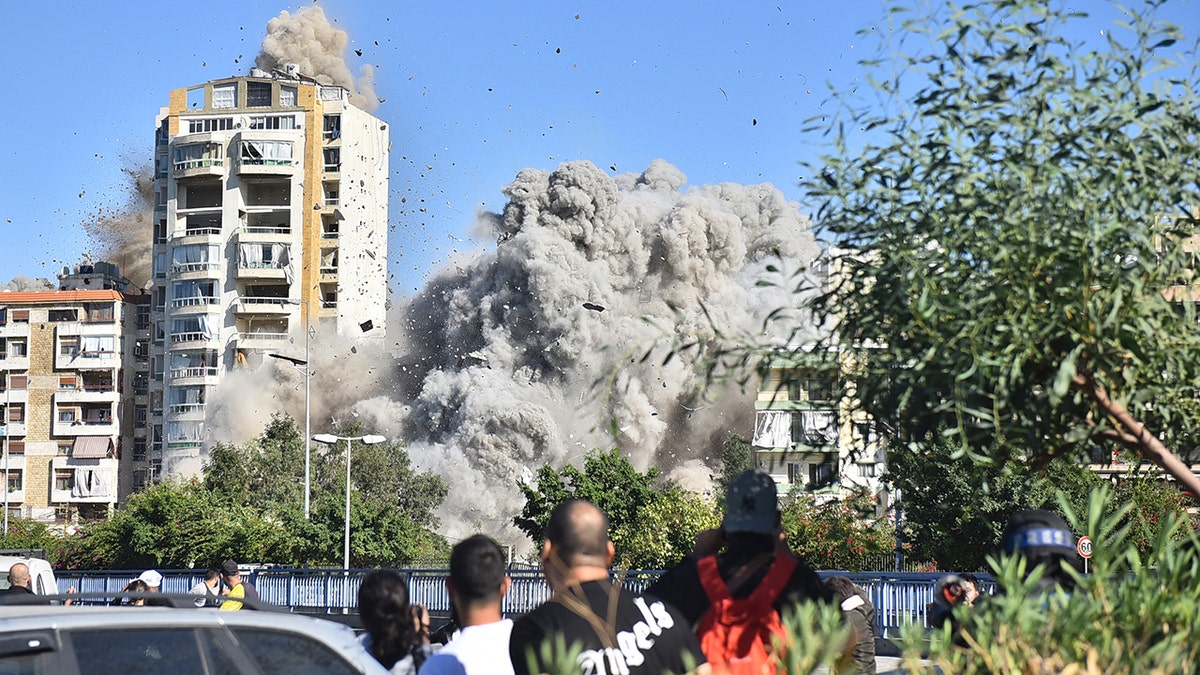
Smoke rises after an Israeli airstrike targeting a Hezbollah stronghold in a southern suburb of Beirut on Oct. 22. (Fadel Itani/AFP via Getty Images)
«We are grateful to our ally Israel for defeating Hezbollah,» Ortagus said at a news conference in Beirut’s southeastern suburb of Baabda after a meeting with Lebanese President Joseph Aoun, the Associated Press reported.
Naim said that while the public may be ready for peace, it is the Lebanese political elite that must take action. «We need America to keep pressure on Lebanon’s corrupt politicians, who have enabled Hezbollah to rebuild its military capabilities… These politicians must publicly endorse peace. It’s not just activists and journalists who should be saying it. The decision-makers must step forward.»
ISRAEL DEGRADES IRAN-BACKED HEZBOLLAH TERRORISTS IN SPECTACULAR PAGER EXPLOSION OPERATION: EXPERTS
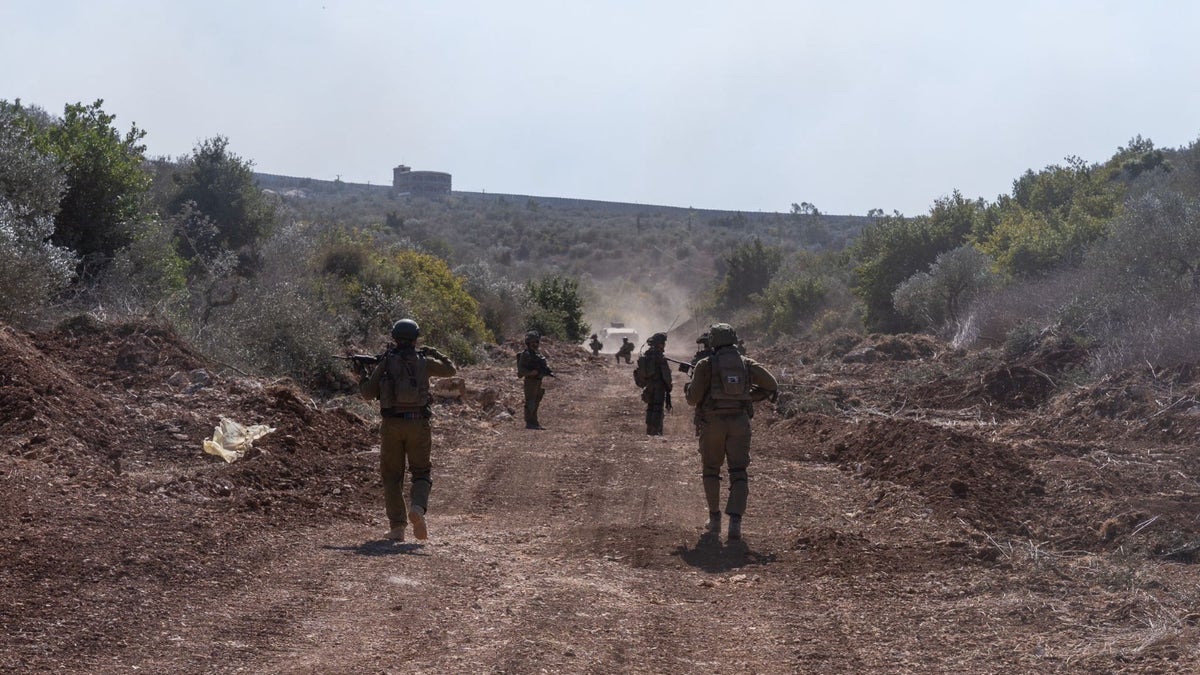
The IDF says its «soldiers are continuing to conduct limited, localized, targeted raids in southern Lebanon, eliminating Hezbollah terrorists and dismantling terror infrastructure and weapons stockpiles both above and below ground.» (IDF Spokesman’s Unit)
Naim’s call for international intervention underscores the continued importance of U.S. influence in Lebanon’s political direction. «We have suffered under the Biden and Obama administrations, as well as those who have made compromises and deals with Iran behind our backs, disregarding our interests,» Naim said.
«During Trump’s first term, there was significant pressure on Iran, which had posed aggression in the region. However, when Trump left the White House, Iran rebuilt its capabilities and grew stronger. Now, we have big hopes for Trump’s second term. His return to the White House would change the equation. What makes us optimistic about Trump is that he fulfills his promises and conducts negotiations from a position of strength, not weakness.»
While there is growing support for peace with Israel, the issue of Palestinian refugees in Lebanon remains a significant hurdle. One man interviewed by Jussor News pointed out, «I believe the whole region is heading toward peace. But we have our demands – you can’t have 500,000 Palestinians living here, then the Israelis come make peace and normalization, and leave them all here with us.»
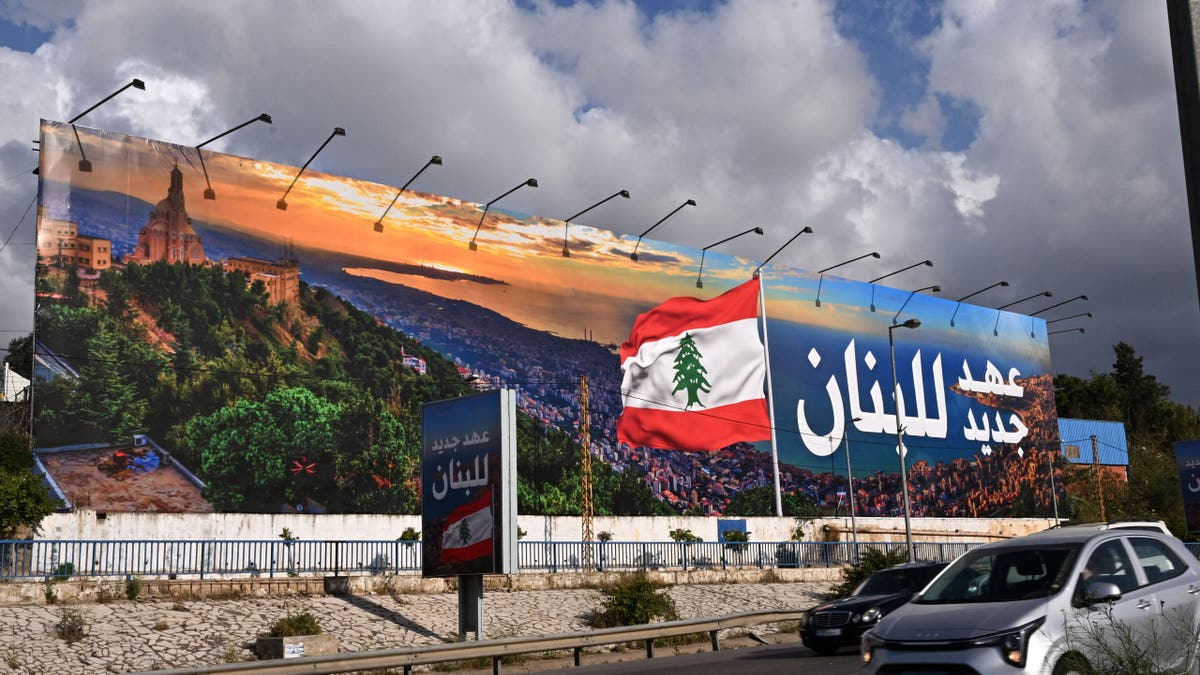
Commuters drive past a newly-installed billboard bearing the image of a Lebanese flag and a statement that reads in Arabic «Lebanon a new era,» on the road leading to Beirut’s Rafic Hariri International airport on April 10, 2025. (Joseph Eid/AFP via Getty Images)
Another woman told Jussor: «We are for peace in Lebanon. Not fighting other people’s wars which are not in Lebanon’s interests. Neutrality, as our patriarch said: enough already. We shouldn’t be looking for excuses or saying, ‘We want to liberate Palestine’ while we keep destroying Lebanon. The Palestinians told us, ‘Relax, we don’t need anything from you.’»
CLICK HERE TO GET THE FOX NEWS APP
«The Lebanese people are divided, but not into two equal parts,» said Naim. «The majority of the Lebanese people today are supportive of normalization and peace with Israel. This is no longer a taboo in Lebanon. Lebanese citizens can say today, ‘I am supportive of peace and normalization because I have suffered from these failed wars. The Israelis want peace, and we want peace. We want to live in peace. So it’s a win-win situation.’»
INTERNACIONAL
Emergencia en India: cuatro muertos y cien desaparecidos tras una avalancha de lodo
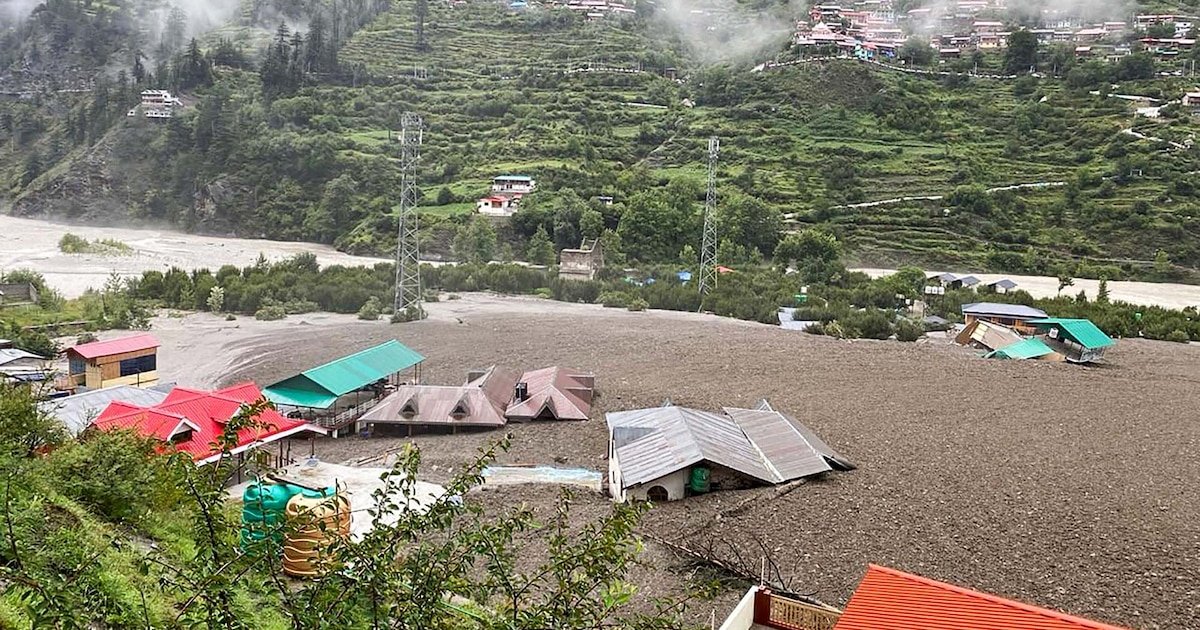
Las inundaciones repentinas causadas por intensas lluvias sorprendieron a la población del pueblo de Dharali, en el distrito de Uttarkashi en el estado indio de Uttarakhand, después de que un torrente de lodo y agua arrasara el martes un estrecho valle montañoso del Himalaya. Al menos cuatro personas fallecieron y alrededor de cien permanecen desaparecidas, según confirmaron autoridades estatales y federales.
El ministro de Estado de Defensa, Sanjay Seth, declaró a la agencia de noticias Press Trust of India (PTI) que “es una situación grave… Hemos recibido información que indica que hay cuatro muertos y alrededor de 100 personas desaparecidas. Rezamos por su seguridad”. Imágenes difundidas por los medios locales mostraron ríos de agua fangosa arrastrando casas y tiendas, mientras personas intentaban escapar ante la oleada de escombros.
Prashant Arya, funcionario administrativo de la región, detalló que “unos doce hoteles han sido arrastrados y varias tiendas se han derrumbado”. Agregó que el ejército indio, junto con policías y rescatistas, trabajaba en la búsqueda de desaparecidos y en la evacuación de quienes permanecían atrapados bajo los restos de los edificios colapsados. El ejército desplegó 150 soldados que han auxiliado en el rescate de unas 20 personas en las primeras horas tras la tragedia.
El comandante de la Fuerza Estatal de Respuesta a Desastres, Arpan Yaduvanshi, informó que el lodo alcanzó hasta 15 metros de profundidad en algunos puntos, cubriendo por completo varios edificios de la localidad. Una alerta roja por lluvias “extremadamente intensas” fue emitida para Uttarakhand por el Departamento Meteorológico de la India, que también ha pronosticado más precipitaciones en los próximos días para la zona.
El primer ministro de India, Narendra Modi, expresó sus condolencias e indicó que “no se está escatimando ningún esfuerzo para prestar asistencia”. El ministro principal del estado de Uttarakhand, Pushkar Singh Dhami, añadió que las agencias de rescate trabajan “a toda máquina” para salvar vidas y ofrecer alivio a los afectados, señalando que la inundación fue causada por un “aguacero” repentino e intenso.
La Autoridad Nacional de Gestión de Desastres de la India (NDMA) solicitó el despliegue de tres helicópteros para apoyar las tareas de rescate, debido a las dificultades de acceso derivadas del terreno montañoso y las condiciones meteorológicas. Las autoridades ordenaron el cierre de escuelas en varios distritos, incluidos Dehradun y Haridwar, dado el pronóstico de lluvias continuas.
La región ha experimentado un aumento en la frecuencia y gravedad tanto de inundaciones como de deslizamientos de tierra, especialmente durante la temporada del monzón, que va de junio a septiembre. Los expertos en gestión ambiental atribuyen parte de este incremento al cambio climático y al desarrollo urbano no controlado en áreas propensas a desastres, como ocurría en los Himalayas.
En 2013, Uttarakhand enfrentó una tragedia similar cuando lluvias intensas causaron la muerte de más de 6.000 personas y afectaron a 4.500 aldeas. Según un informe de 2023 del Centro Internacional para el Desarrollo Integrado de las Montañas, al menos 200 de los más de 2.000 lagos glaciares de la región podrían desbordarse y causar inundaciones catastróficas río abajo.
De acuerdo con la Base de Datos de Eventos de Emergencia de la Universidad de Louvain, en 2024 ocurrieron 167 desastres en Asia, el número más alto entre todos los continentes, que incluyeron tormentas, inundaciones, olas de calor y terremotos, y causaron pérdidas superiores a 32.000 millones de dólares.
Las autoridades continúan las labores de búsqueda y rescate en Dharali, mientras la población se mantiene alerta ante la amenaza de nuevas precipitaciones y posibles deslizamientos de tierra en la región montañosa del Himalaya.
(Con información de AFP y AP)
essential,flood,horizontal,topshots,weather
INTERNACIONAL
Senate GOP ready to go nuclear after Schumer’s ‘political extortion’ of nominees
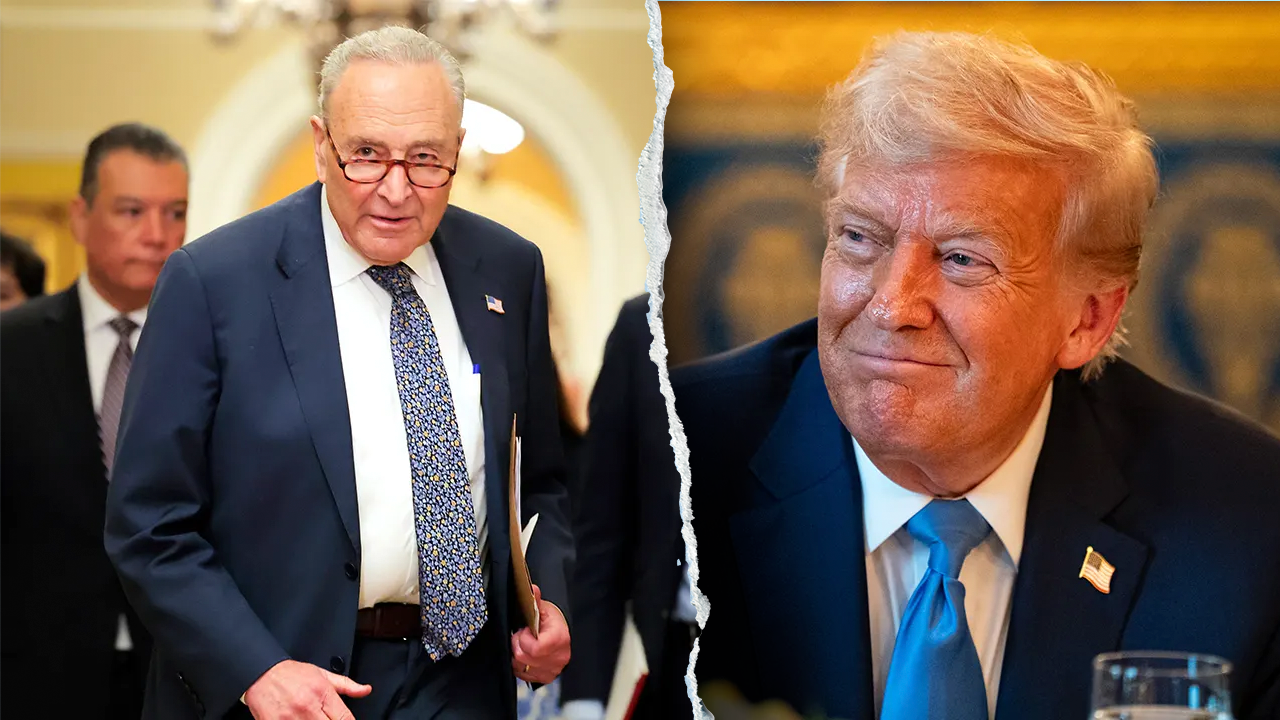
NEWYou can now listen to Fox News articles!
Senate Republicans are mulling whether to go nuclear after negotiations with Senate Democrats to ram through President Donald Trump’s nominees fell apart over the weekend.
The path to confirming dozens of Trump’s outstanding nominees was destroyed when the president accused Senate Minority Leader Chuck Schumer, D-N.Y., of «political extortion,» and charged that the Democratic leader’s asking price for nominees was too high.
TRUMP TELLS SCHUMER TO ‘GO TO HELL’ OVER SENATE NOMINEE DEAL FUNDING DEMANDS AFTER NEGOTIATIONS COLLAPSE
Senate Republicans are mulling whether to go nuclear after negotiations with Senate Democrats to ram through President Donald Trump’s nominees fell apart over the weekend. (Anna Moneymaker/Getty Images; Al Drago/Bloomberg via Getty Images)
Now, lawmakers have left Washington without a deal to bundle dozens of nominees that made it through committee with bipartisan support, and a change to how the Senate handles the confirmation process is on the horizon.
Senate Majority Whip John Barrasso, R-Wyo., berated Schumer and Senate Democrats for their «unprecedented» blocks of the president’s nominees, and noted that every pick had been filibustered save for Secretary of State Marco Rubio, who glided through the Senate earlier this year.
«We have been working through the list, but there is still a large backlog because of the unprecedented filibuster by the Democrats of every nominee,» Barrasso said. «And if they don’t change their behavior, we’re going to have to change how things are done here, because a president needs to have his or her team in place.»
DEMS DIG IN, TRUMP DEMANDS ALL: NOMINEE FIGHT BOILS OVER IN SENATE AS GOP LOOKS FOR A DEAL
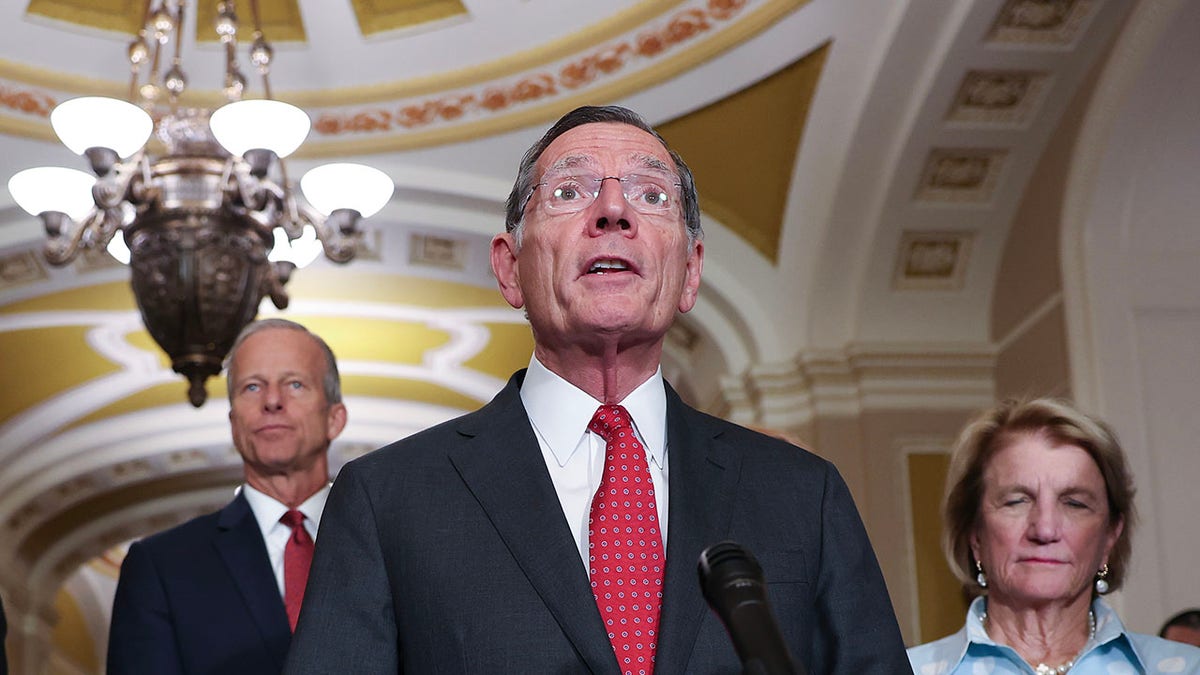
Sen. John Barrasso speaks to reporters during the weekly luncheons on Capitol Hill on June 24, 2025. (Tasos Katopodis/Getty Images)
Under normal circumstances, changing the rules in the Senate would require 67 votes, meaning that Senate Democrats would have to be on board with a change. However, there is a path that lawmakers refer to as the nuclear option, which allows for rules changes to only need a simple majority.
There is the political will among Republicans to change the rules, but doing so would open the door for Senate Democrats to do the same when they get into power once more.
«I think that way is going to happen anyways, because of what Schumer has done. He’s forced this, and it’s ridiculous that he’s doing this,» Sen. Markwayne Mullin, R-Okla., said. «And so, whatever, we’re at this point, and we’ll do, you know what they say, every action requires an equal [reaction], and that’s what we’re at right now.»
Some of the options on the table include shortening the debate time for nominees, getting rid of procedural votes for some lower-level nominees, grouping certain civilian nominees «en bloc» – something that is already done for military nominees – and, at the committee level, deciding whether to lower the number of nominees subject to the confirmation process.
GRIDLOCK CRUMBLES AS SENATE ADVANCES SPENDING BILLS IN RACE AGAINST SHUTDOWN
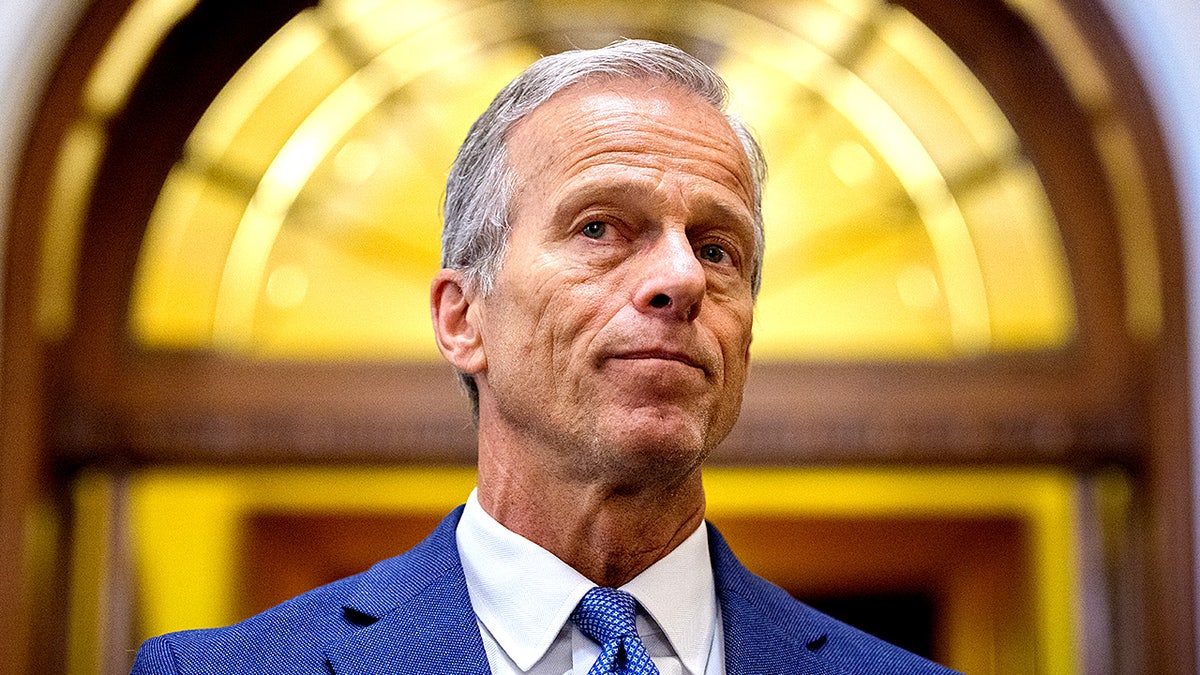
Senate Majority Leader John Thune pauses while speaking to reporters at the U.S. Capitol on July 1, 2025. (Getty Images/Andrwe Harnik)
Currently, over 1,200 positions go through Senate confirmation. Senate Republicans have been able to confirm over 130 of Trump’s picks so far, but had a loftier goal of doing at least 60 more before leaving town until September.
And there are over 140 nominees still pending on the Senate’s calendar.
«I think they’re desperately in need of change,» Senate Majority Leader John Thune, R-S.D., told reporters. «I think that the last six months have demonstrated that this process, nominations, is broken. And so I expect there will be some good robust conversations about that.»
As to when lawmakers will try to run with a rules change is still in the air. The Senate is gone from Washington until early September and will return to a looming deadline to avert a partial government shutdown.
Before leaving town, the Senate did advance a trio of spending bills – a first in the upper chamber since 2018 – but those same bills are unlikely to pass muster in the House, given that they spend at higher levels than the ones greenlit by the House GOP.
Ramming a rules change through without Democrats could also come at a price for government funding negotiations. Schumer said a possible rules change would be a «huge mistake» for Republicans to do on their own.
CLICK HERE TO GET THE FOX NEWS APP
«Because when they go at it alone, they screw up for the American people and for themselves,» he said.
When asked if there were any possible rule changes that he and Senate Democrats could agree to, Schumer said, «We should be working together on legislation to get things done for the American people.»
«That’s the way to go, not changing the rules, because when they change the rules, they say, ‘Only we’re going to decide what’s good for the American people,’ and every time they do that, the American people lose,» Schumer said.
Still, Republicans were unhappy with the way negotiations devolved after days of back and forth.
«We actually, we wanted a deal,» Mullin said. «And these people deserve to be put in position… they’re going to say that we’re trying to do a nuclear option. The fact is, they – Schumer – went nuclear a long time.»
politics,senate,donald trump,chuck schumer
INTERNACIONAL
El voto en blanco y nulo crece en las encuestas en Bolivia y supera a los favoritos para las elecciones presidenciales
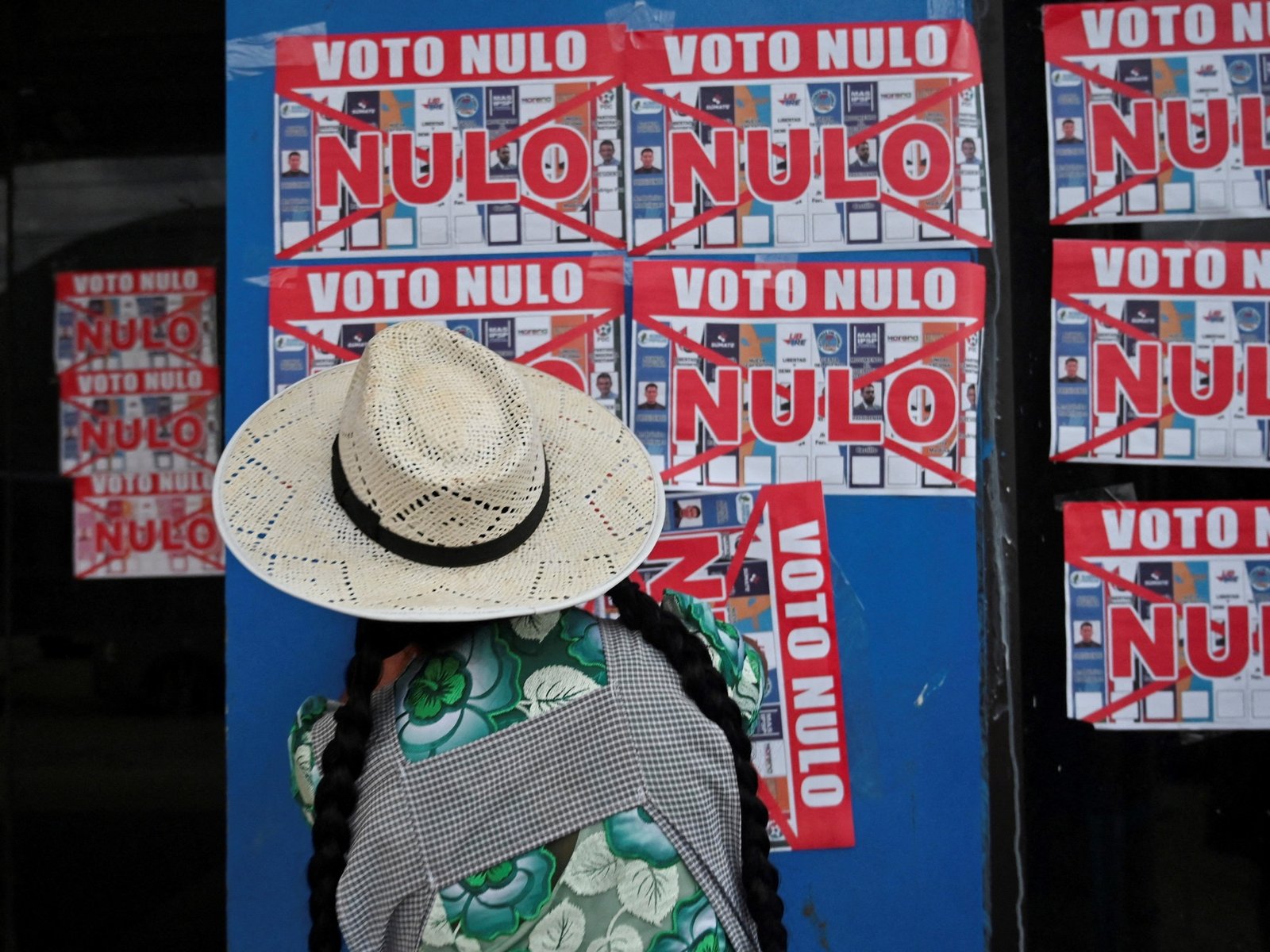
El pedido de Evo Morales
Qué dicen las leyes sobre el voto en blanco

 SOCIEDAD1 día ago
SOCIEDAD1 día agoHay alerta amarilla por tormentas y frío extremo para este lunes 4 de agosto: las provincias afectadas

 POLITICA19 horas ago
POLITICA19 horas agoMartín Menem se refirió al escándalo de Tech Security que involucra a su familia: “Nos quieren meter a todos en la misma bolsa”

 POLITICA20 horas ago
POLITICA20 horas agoJavier Milei apuntó contra la oposición por cuestionar el veto presidencial al aumento de las jubilaciones


















